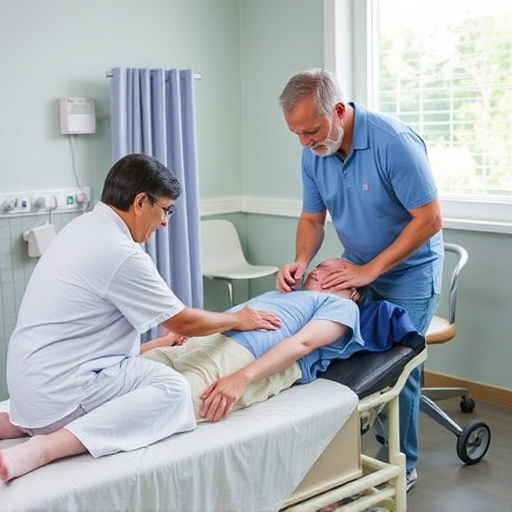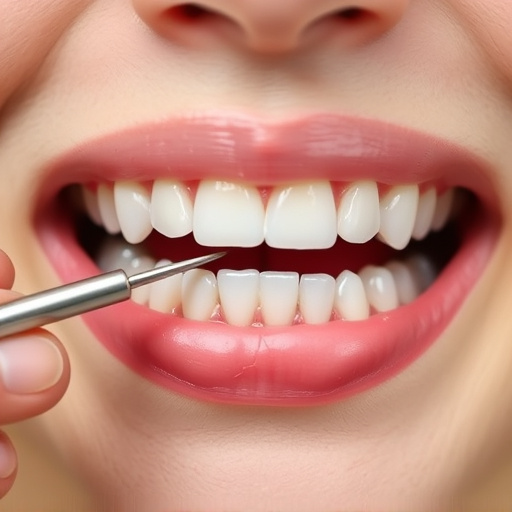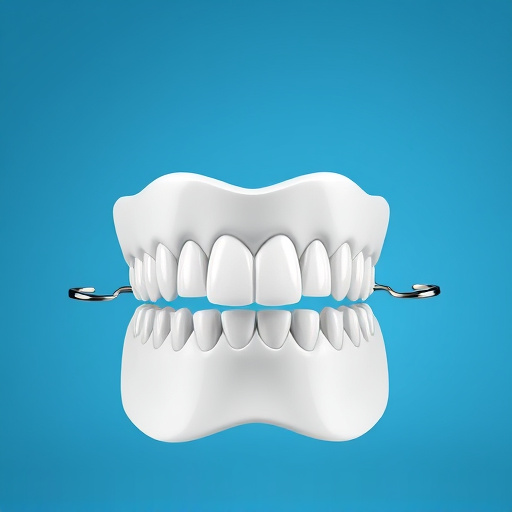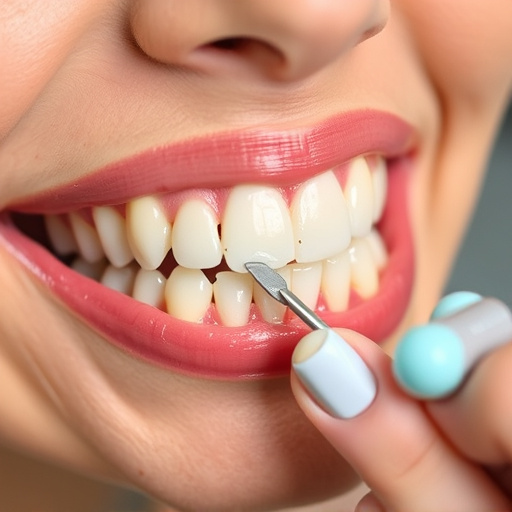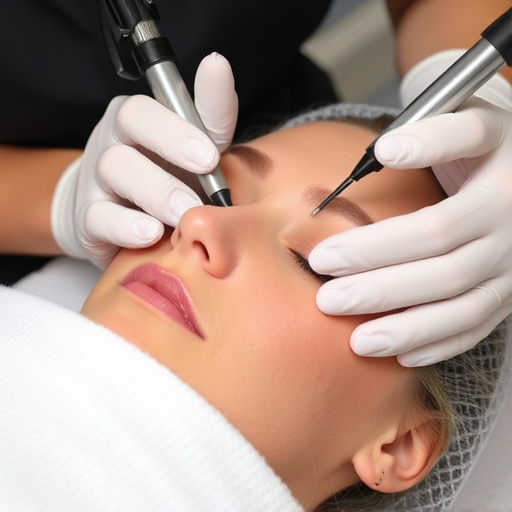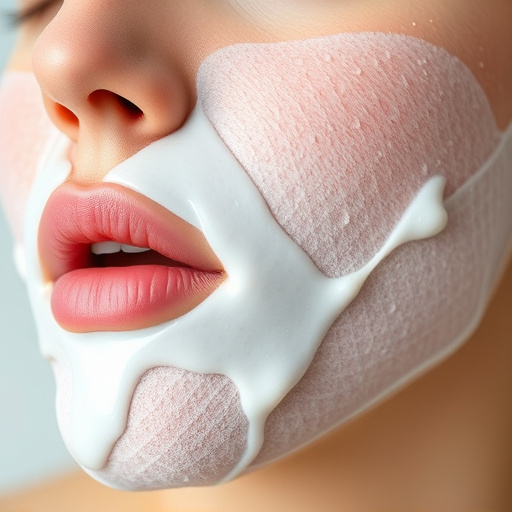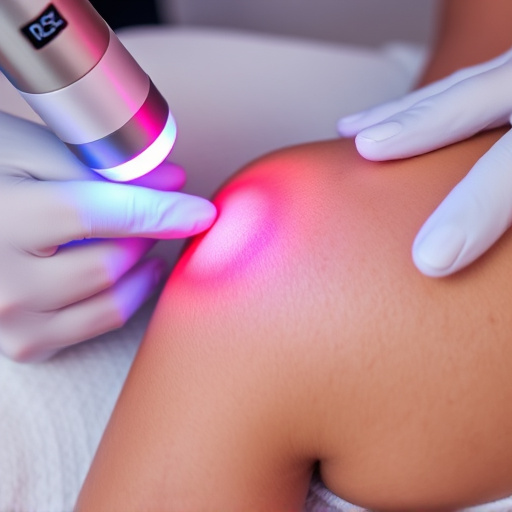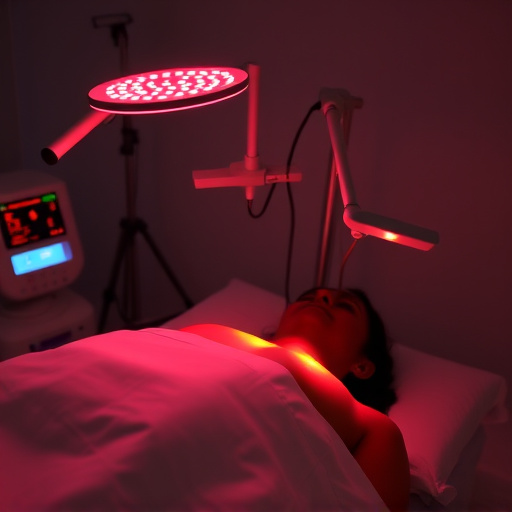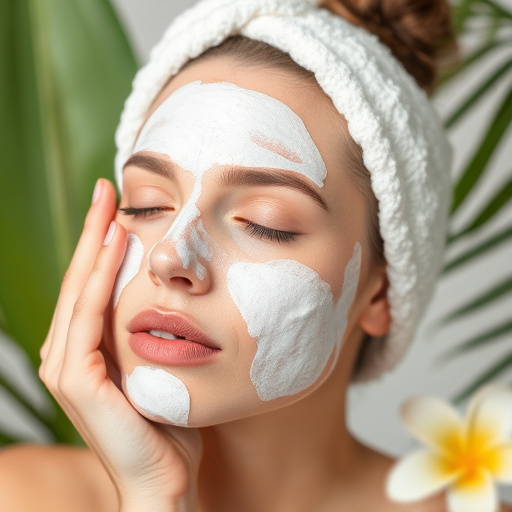Acne scars result from skin's incomplete repair of acne damage, with severity varying by type, duration, and genetics. Treatments focus on scar types like atrophic (pit) or keloidal (elevated) scars, aiming to minimize visibility and improve skin health. Topical treatments, including retinoids and hydrating agents, stimulate collagen production. Chemical peels and facial treatments offer resurfacing with quick recovery. Non-invasive procedures like microneedling and customized facials using vitamin C, retinoids, and hyaluronic acid provide safe, effective acne scar treatment.
Acne scars can leave lasting marks on the skin, but effective treatment options exist with minimal side effects. Understanding how acne scars form is the first step towards choosing the right approach. This article explores topical treatments, known for their accessibility and benefits, as well as non-invasive procedures that offer precise targeting with reduced risks. By delving into these methods, individuals can regain confidence knowing their skin’s journey towards clarity and resilience.
- Understanding Acne Scar Formation
- Topical Treatments and Their Benefits
- Non-Invasive Procedures with Minimal Risks
Understanding Acne Scar Formation
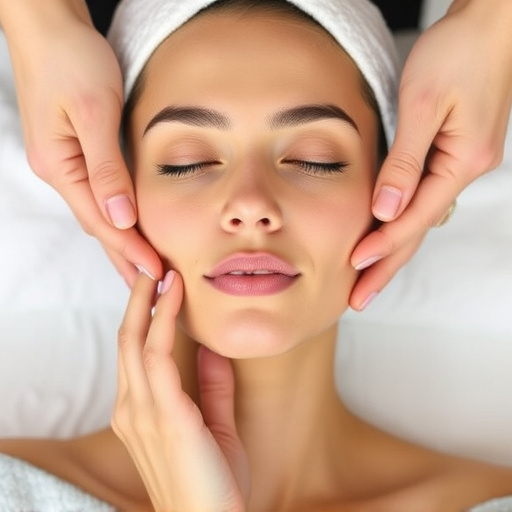
Acne scars form when the skin’s natural healing process doesn’t repair damaged skin tissue caused by acne breakouts. This can result in depressions or elevations on the skin’s surface, appearing as pits or bumps. The severity of scarring depends on various factors, including the type and duration of acne, individual skin thickness, and genetic predisposition. Over time, these scars can impact skin health and overall aesthetic appeal, leading individuals to seek effective acne scar treatment solutions.
Understanding how acne scars develop is crucial when considering appropriate aesthetic treatments. Different types of scars, such as atrophic (pit scars) or keloidal (elevated scars), require specific approaches. Customized facials and targeted skincare routines can significantly improve skin health and minimize the visibility of scars. By addressing the underlying causes and utilizing advanced techniques, individuals can achieve smoother, more even skin tones, enhancing their overall confidence and self-esteem.
Topical Treatments and Their Benefits
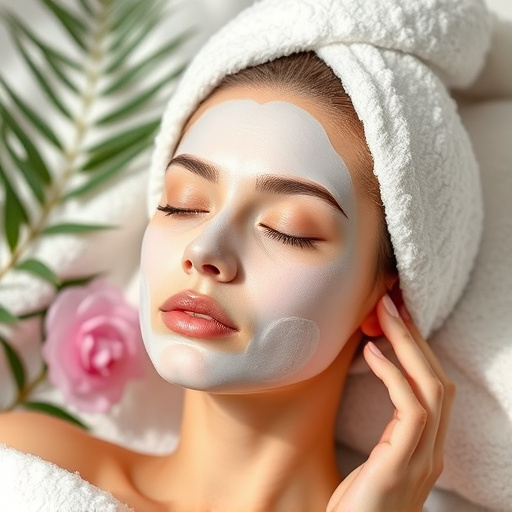
Topical treatments for acne scar treatment have gained significant popularity due to their minimal side effects and visible results. These treatments focus on applying active ingredients directly to the skin, allowing for targeted rejuvenation. One such popular option is retinoids, which stimulate collagen production and improve skin texture. They are often combined with hydrating agents to prevent dryness, a common side effect of other acne treatments.
Chemical peels and facial treatments also fall under this category, offering a gentle yet effective way to resurface the skin. These procedures use specific chemicals or tools to gently remove damaged skin layers, encouraging new, healthy skin growth. Many people prefer these methods over more invasive procedures because they offer quick recovery times and minimal downtime, making them ideal for those seeking an acne scar treatment solution without the hassle and potential risks of surgery.
Non-Invasive Procedures with Minimal Risks
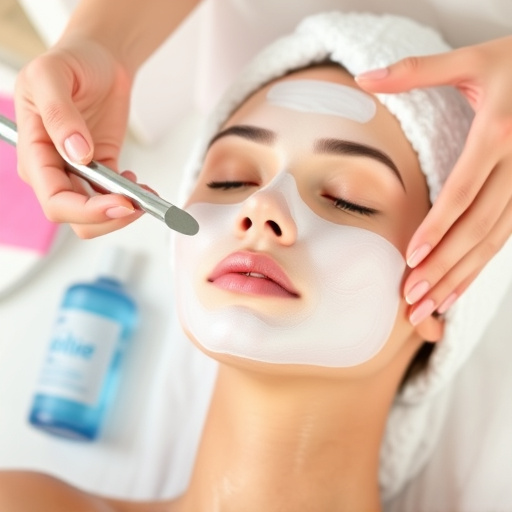
When it comes to non-invasive procedures for acne scar treatment, modern dermatology offers a range of safe and effective options with minimal risks. These treatments focus on stimulating collagen production and rejuvenating the skin’s surface to minimize the appearance of scars. One popular approach is microneedling, which involves using fine needles to create tiny channels in the skin, encouraging the body to heal and produce new collagen fibers. This simple yet powerful technique has shown remarkable results in reducing acne scar severity.
Additionally, various facial treatments, including customized facials tailored to individual skin concerns, have gained popularity. These non-surgical treatments use a combination of ingredients like vitamin C, retinoids, and hyaluronic acid to improve skin texture, enhance elasticity, and even out skin tone. Such procedures not only address acne scars but also promote overall skin health, providing long-lasting benefits with minimal downtime.
Acne scars can be a persistent reminder of past skin issues, but with the right approach, effective acne scar treatment is achievable. By understanding how these scars form and exploring various treatment options, from topical solutions to non-invasive procedures, individuals can reclaim their skin’s confidence. The benefits of these modern treatments offer minimal side effects, making them accessible and appealing choices for those seeking clearer, smoother skin. Remember, with dedicated care, acne scars need not define your complexion’s story.
